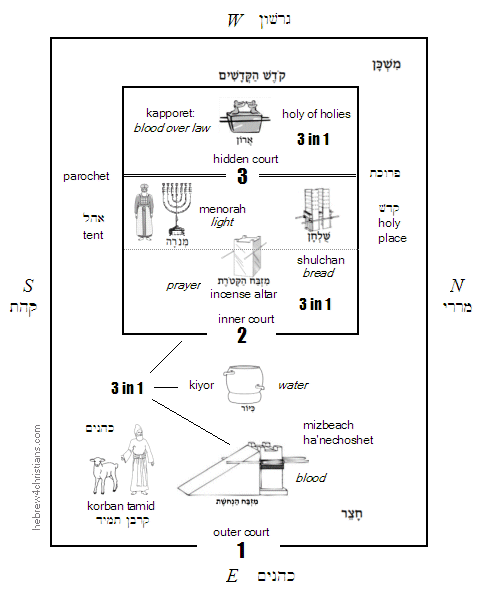

The Kotzker Rebbe was once asked: “Where does God dwell?” to which he replied, “Wherever you let Him in.”
Eruvin (Fol. 2a) We find that the Temple is sometimes called Mishkan and that the Tabernacle is called Mikdash. It is quite right that the Temple is sometimes called Mishkan, for it is written (Lev. 26, 11.) And I will set my Mishkan (Tabernacle) among you. . . . .But this we learn from (Ex. 25, 8.) And they shall make me a Mikdash and I will dwell in the midst of them, [referring to the Tabernacle].
Tzeda Laderech -- Rabbi Yechiya Eltshari
The Holy One does not reside in the sanctuary on account of the sanctuary, but does so only on account of the people Israel, for they constitute the Temple of God
How is holiness organized? Abraham Joshua Heschel, The Sabbath (1951)
...The mythical mind would expect that, after heaven and earth have been established, God would create a holy place -- a holy mountain or a holy spring -- whereupon a sanctuary is to be established. Yet it seems as if to the Bible it is holiness in time, the Sabbath, which comes first.
When history began there was only one holiness in the world, holiness in time. When at Sinai the word of God was about to be voiced, a call for holiness in man was proclaimed: "Thou shalt be unto me a holy people." It was only after the people had succumbed to the temptation of worshipping a thing, a golden calf, that the erection of a Tabernacle, of holiness is space, was commanded. The sanctity of time came first, the sanctity of man came second, and the sanctity of space last. Time was hallowed by God; space, the Tabernacle, was consecrated by Moses.
“Holy, holy, holy!
The LORD of Hosts!
His presence fills all the earth!”
זֶ֤ה אֵלִי֙ וְאַנְוֵ֔הוּ {ס}
This is my God and I will enshrine Him;
"This is my God and I shall become His house; I shall attempt to express His will in every word I utter and every action I perform.”––Rabbi Samson Raphael Hirsch




